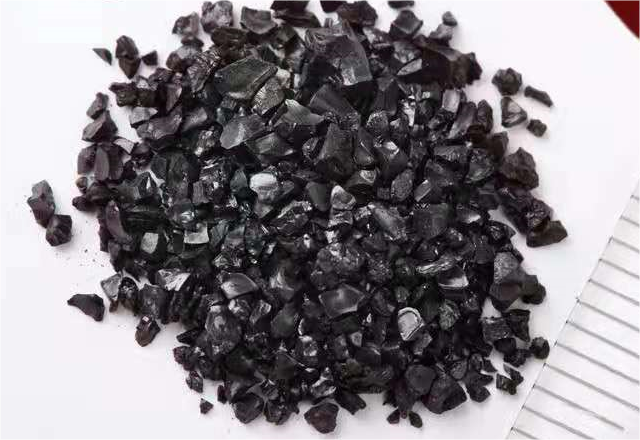Unlock the power of nature’s carbon technology! Our premium water-soluble Potassium Humate (Fulvic-Humic Complex) delivers unprecedented root development, nutrient efficiency, and stress resilience. Certified to EU Ecocert & OMRI standards for organic farming, it’s your all-in-one solution for sustainable yield breakthroughs.

I. Triple-Action Performance Advantages
Soil Transformation Engine
- Structure Repair: Binds sandy soils/clays → increases CEC by 40% → reduces erosion & compaction
- Microbial Activation: 3x beneficial microbe proliferation (e.g., Azotobacter, Pseudomonas)
- Toxin Neutralization: Chelates heavy metals (Cd²⁺, Pb²⁺) & pesticide residues
Plant Performance Catalyst
- Root Amplifier: 57% denser root mass in 20 days (proven in tomatoes, grapes)
- Nutrient Booster: N-P-K uptake efficiency +35% → cuts fertilizer costs
- Stress Shield: ABA-like hormones reduce drought/salinity damage by 60%
II. Precision Application Protocols
- Cash Crops (Coffee, Cotton)
- Method: Drip fertigation (3-5kg/ha)
- Timing: Pre-flowering stage
- Formula: Blend with NPK → yield +25%
- Greenhouse Vegetables (Tomatoes, Cucumber)
- Method: Seed priming (0.2% solution) + Foliar spray (bi-weekly)
- Result: Germination rate ↑90% vs. control
- Degraded Soils
- Method: 10kg/ha basal + biochar
- Outcome: Organic matter ↑1.2% in 1 season
III. Industrial & Environmental Applications
- Wastewater Treatment: Flocculant for heavy metal removal (Cu²⁺/Zn²⁺ clearance >92%)
- Drilling Fluid Additive: Shale stabilizer reducing well collapse risk
- Animal Feed Supplement: Enhances nutrient absorption → FCR improvement 8-12%
IV. Global Efficacy Validation
- Spain Olive Grove: 4x foliar sprays (0.5kg/ha) → oil content ↑15%, Brix +2.3°
- India Paddy Fields: 7kg/ha basal → reduced urea usage 30%, yield +19%
- California Almonds: Post-bloom drip application → kernel weight ↑22%
V. Why Choose Our Potassium Humate?
- Bioactivity Guarantee:
Fulvic acid ≥60% | K₂O ≥12% | pH 9-11
Nano-fraction technology (<500Da particles) - Supply Chain Assurance:
GMP-certified production | Batch traceability | 25kg bags/bulk ISO tanks
Conclusion: Invest in Soil Wealth, Harvest Prosperity
Potassium humate isn’t just an input – it’s farmland equity. Our product delivers:
- Resource Efficiency: Slash fertilizer inputs while boosting output
- Regenerative Impact: Build soil capital for generational farming
- Risk Mitigation: Climate-proof crops against extreme weather
Where traditional agronomy hits limits, humate science unlocks new yield dimensions.
Post time: Sep-01-2025
